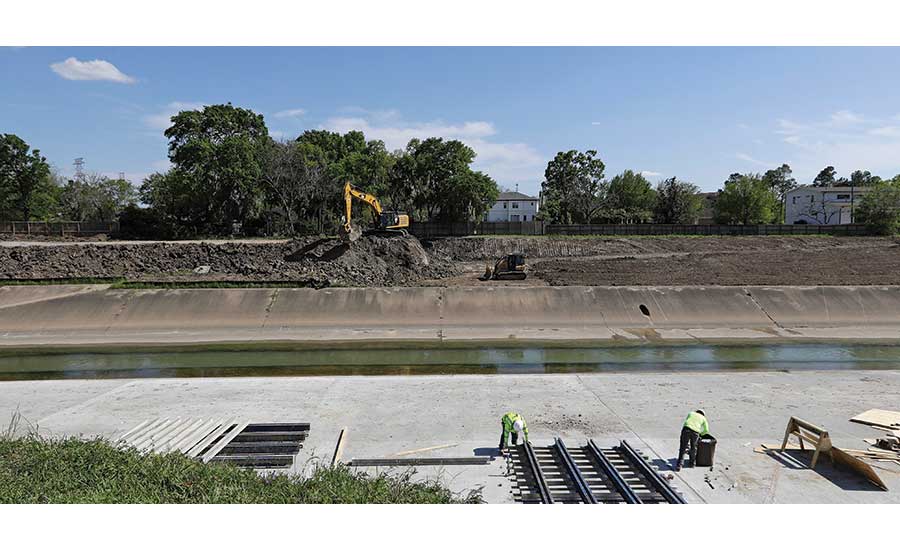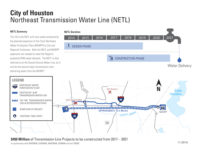Following a new analysis that examined the damage and flood impacts of Hurricane Harvey, Houston’s Dept. of Public Works is recommending that all new structures in the city’s 100- and 500-year floodplains be elevated to 2 ft above the 500-year flood elevation to avoid such damage in the future.
If approved, the new regulations would go into effect Sept. 1.
The report, released in March, notes that current floodplain regulations, which require structures in the 100-year floodplain to be elevated 1 ft above the 100-year flood elevation, weren’t effective. Of the homes that were compliant with the city’s 100-year floodplain ordinance, 38% flooded, according to studies. The city only minimally regulates the 500-year floodplain, where 33% of homes flooded. The department recommends extending regulations to the 500-year floodplain.
Houston Public Works’ analysis found that 19% of the structures located in areas outside the floodplains, including single-family and multifamily homes and commercial buildings, also flooded.
If all of Houston’s homes had been built to 2 ft above the 500-year flood elevation, 84% of the homes that flooded during Hurricane Harvey would have been spared, the agency found.
Costs to elevate new structures to the new levels could range between $11,000 and $32,000 per structure, according to the analysis. The proposed changes would be based on FEMA floodplain maps. Harris County’s current map dates from 2007 and is incrementally updated on a regular basis. A countywide remap has begun, but will take several more years.
In a related move, city of Houston Chief Resilience Officer Stephen Costello presented 13 flood relief projects to the city council on March 21 that will compete for $500 million in Federal Emergency Management Agency (FEMA) relief funding. The projects would cost more than $700 million and include work such as the addition of flood gates at Lake Houston. Officials are also considering a major project that would require drilling huge tunnels under the city to drain stormwater. Black & Veatch opened a tunneling center in Houston and have been pushing tunnels as a partial solution to flooding. County commissioners were expected to vote on proceeding with a feasibility study on March 27.





